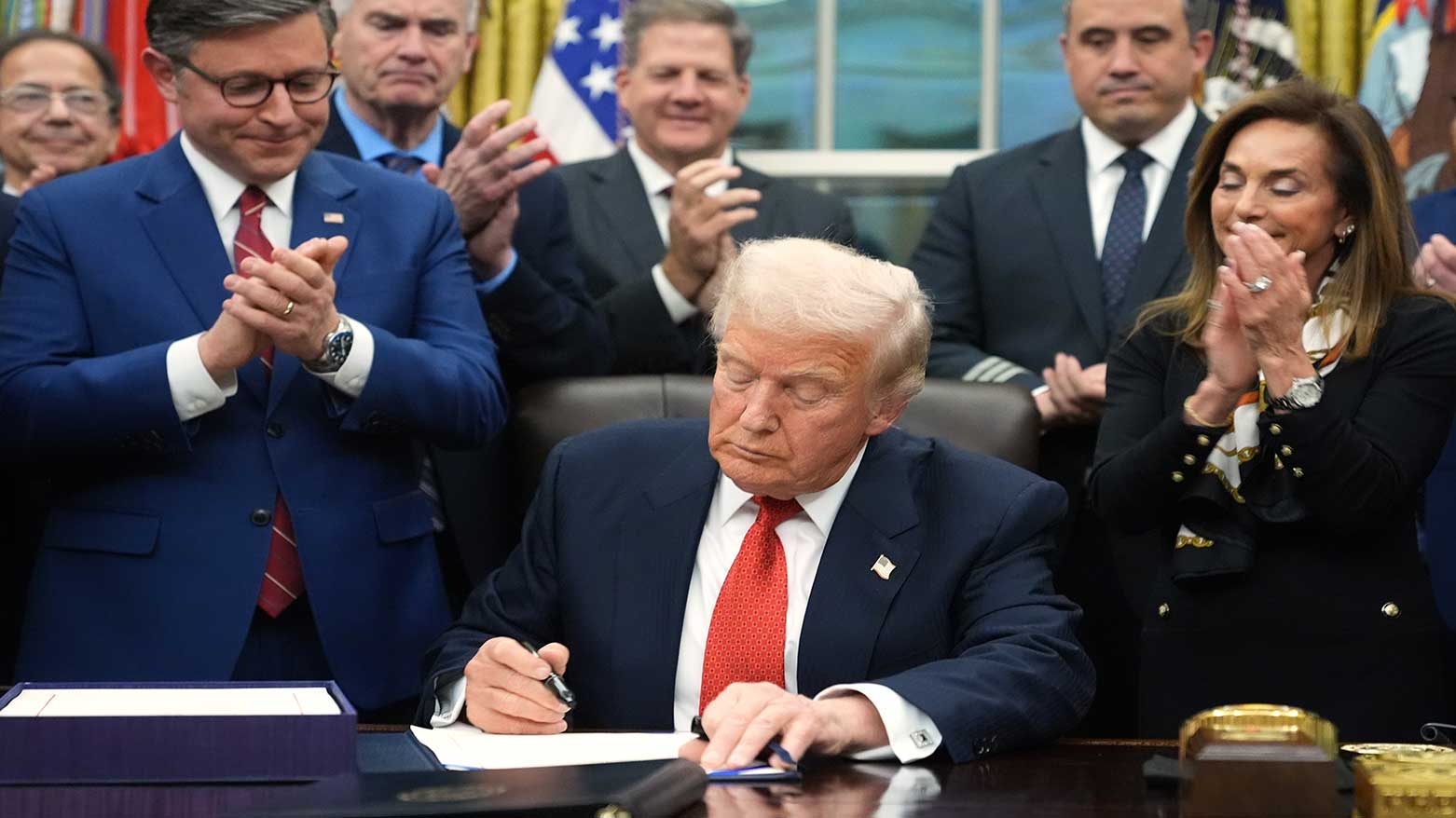Trump Signs Bill Ending Record 43-Day Shutdown Amid Fierce Partisan Divisions
The funding deal ends weeks of gridlock, but leaves health care tax credits unresolved as both parties brace for another fight in December.

ERBIL (Kurdistan24) — U.S. President Donald Trump on Wednesday night signed a government funding bill to end a record 43-day federal shutdown that paralyzed government operations, left thousands of federal workers without pay, and strained public services across the country.
The shutdown, the longest in U.S. history, exposed deep political divides in Washington as Trump pursued actions—including canceling projects and attempting to dismiss federal employees—to pressure Democrats into conceding on a disputed health care tax credit extension.
The president accused Democrats of causing the crisis, urging voters not to reward them in next year’s midterm elections.
“So I just want to tell the American people, you should not forget this,” Trump said during the signing ceremony. “When we come up to midterms and other things, don’t forget what they’ve done to our country.”
The House approved the spending package earlier Wednesday by a narrow 222-209 vote, following the Senate’s passage two days earlier. The deal—brokered by a small group of bipartisan senators—funds three annual spending bills and extends the rest of the government’s operations through January 30.
It also guarantees back pay for furloughed federal workers and safeguards them from layoffs through the next budget cycle.
The shutdown’s political toll was evident during heated debates on the House floor. Republicans accused Democrats of using the suffering of federal workers as leverage in policy negotiations, while Democrats criticized the GOP for prioritizing tax cuts for the wealthy over health care relief for ordinary Americans.
“They knew it would cause pain and they did it anyway,” said House Speaker Mike Johnson, a Republican.
Democrats countered that the Republican-led Congress had earlier pushed through tax breaks favoring corporations while refusing to extend health subsidies that help millions afford coverage under the Affordable Care Act (ACA).
“This fight is not over,” said Democratic leader Hakeem Jeffries. “We’re just getting started.”
The legislation reverses Trump’s earlier dismissal of federal employees during the shutdown and secures $203.5 million to enhance security for lawmakers, along with an additional $28 million for Supreme Court justices.
It also ensures funding for food assistance programs through the remainder of the fiscal year.
However, Democrats expressed outrage over a late addition to the bill allowing senators to sue federal agencies for unauthorized searches of their electronic records—an element viewed as a concession to Republican lawmakers concerned about past FBI investigations into Trump’s 2020 election challenges.
The most contentious unresolved issue remains the fate of the enhanced ACA tax credit, which has helped millions of Americans afford health coverage since the COVID-19 pandemic.
Without renewal, the Congressional Budget Office warned that premiums could more than double, and over two million people might lose coverage next year.
Although the new funding deal averts an immediate crisis, it sets the stage for another showdown in December when the Senate is expected to revisit the tax credit issue.
Some moderate Republicans, including Sen. Susan Collins of Maine, have indicated openness to extending the credits with new income caps, while Democrats have demanded a clean extension without restrictions.
Rep. Rosa DeLauro, the top Democrat on the House Appropriations Committee, voiced skepticism that the GOP would compromise, saying, “Republicans have wanted to dismantle the Affordable Care Act for 15 years. That’s where they’re trying to go.”
As Washington returns to normal operations, both parties are already framing the end of the shutdown as a political victory—yet the fundamental divisions over fiscal priorities and health care policy ensure that another battle is only weeks away.